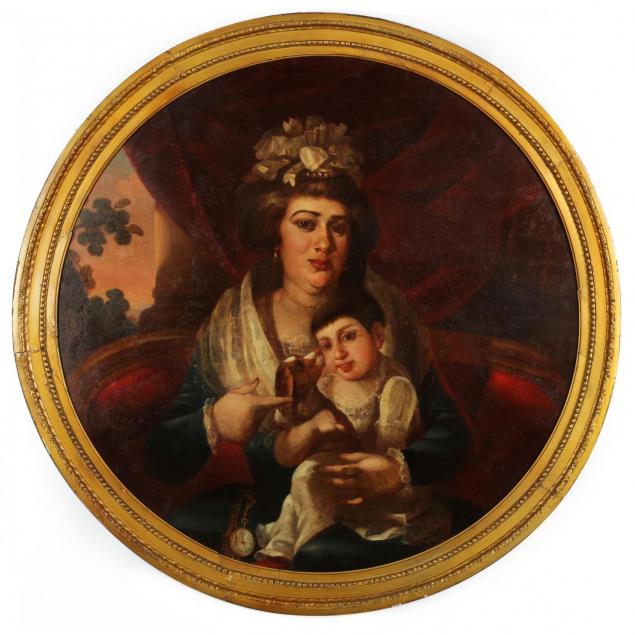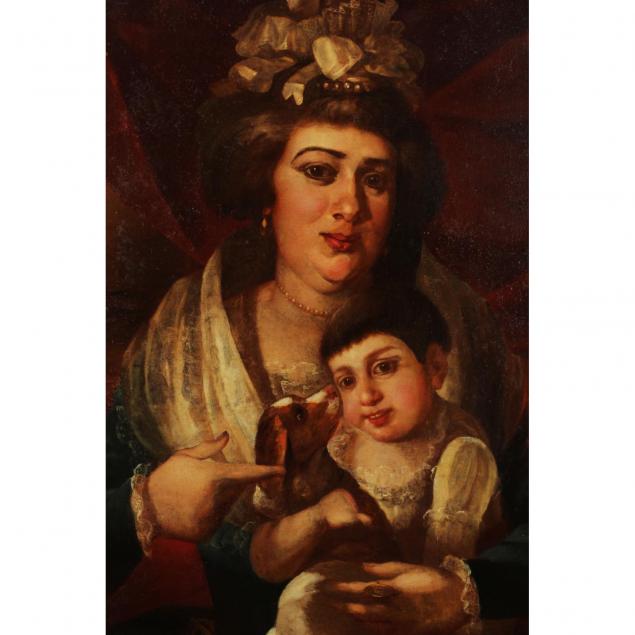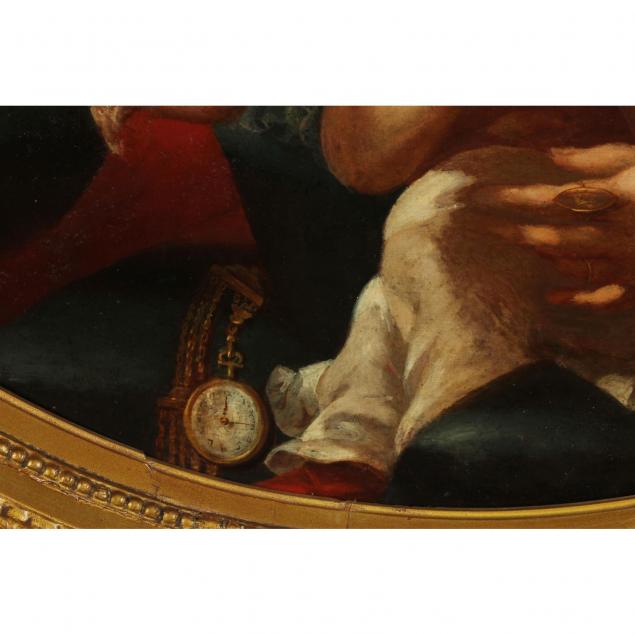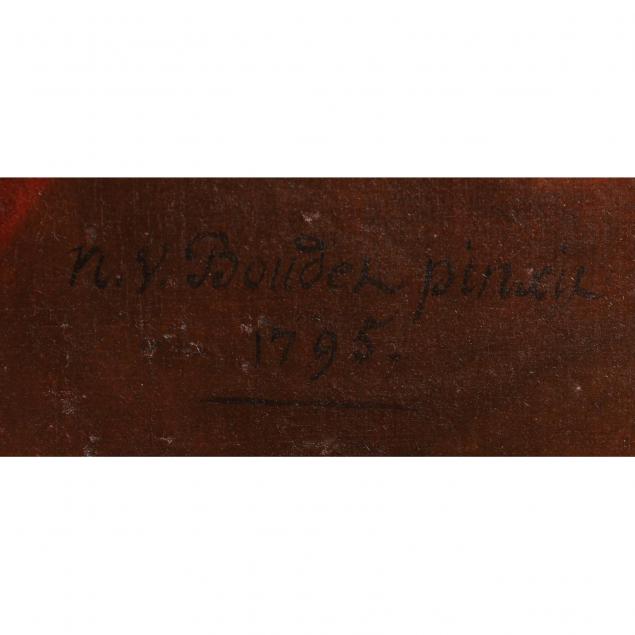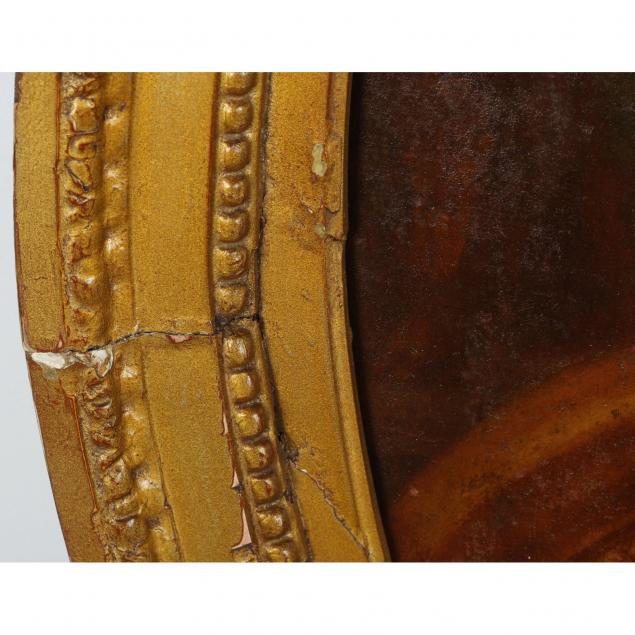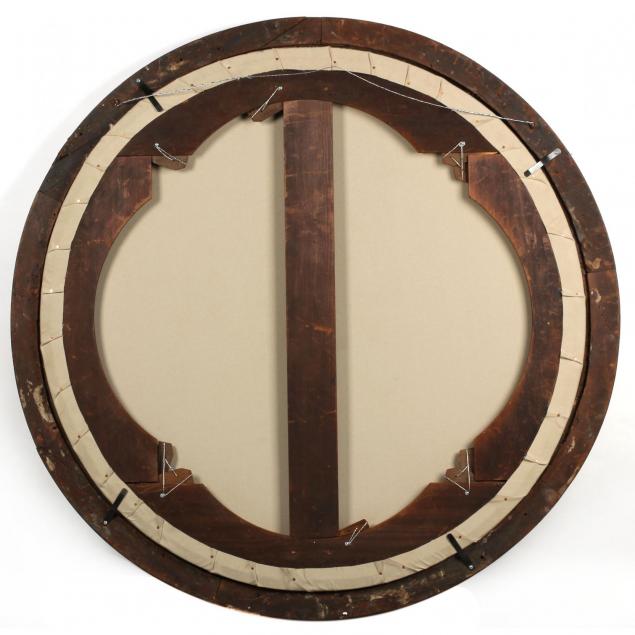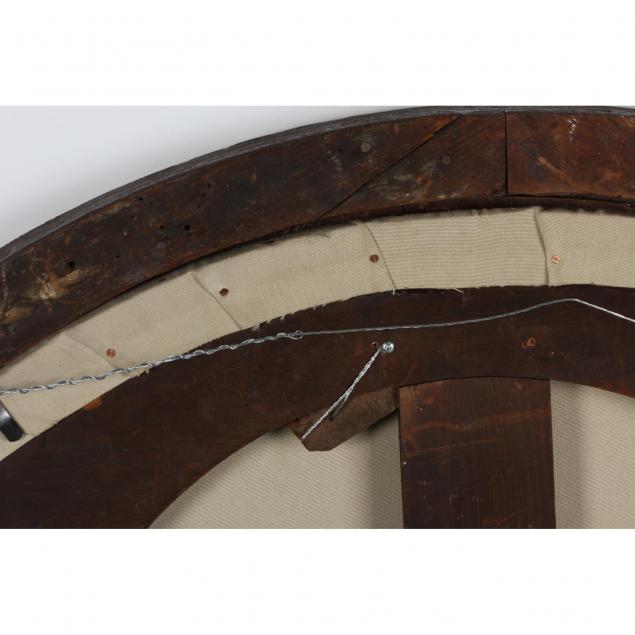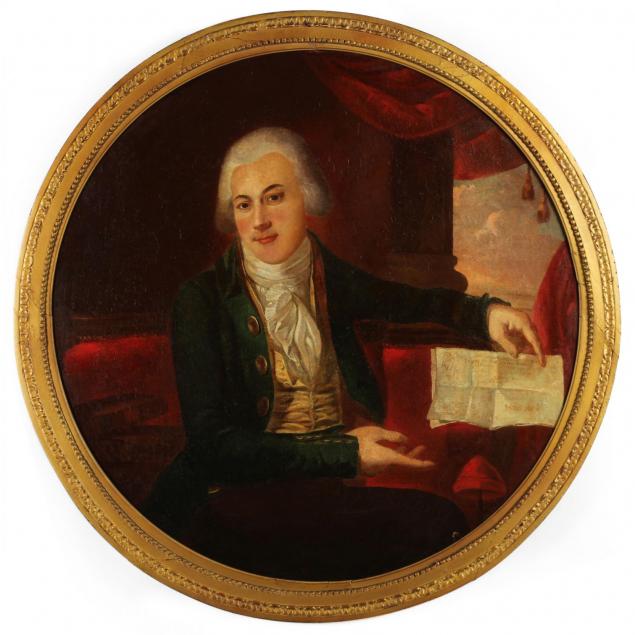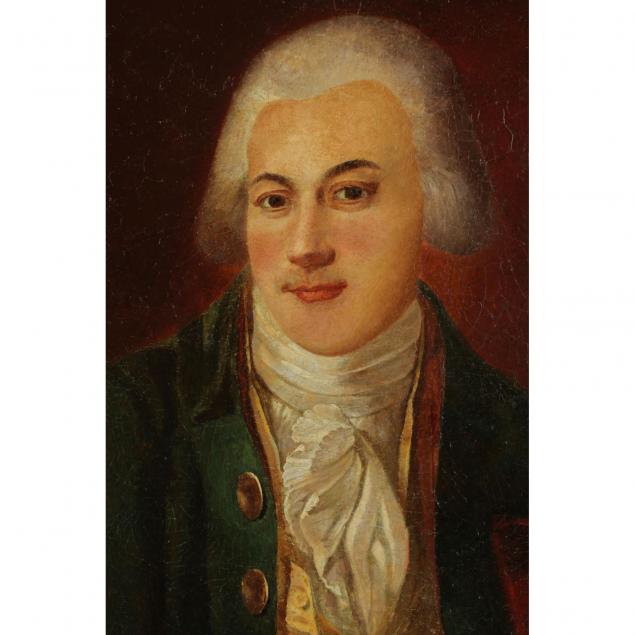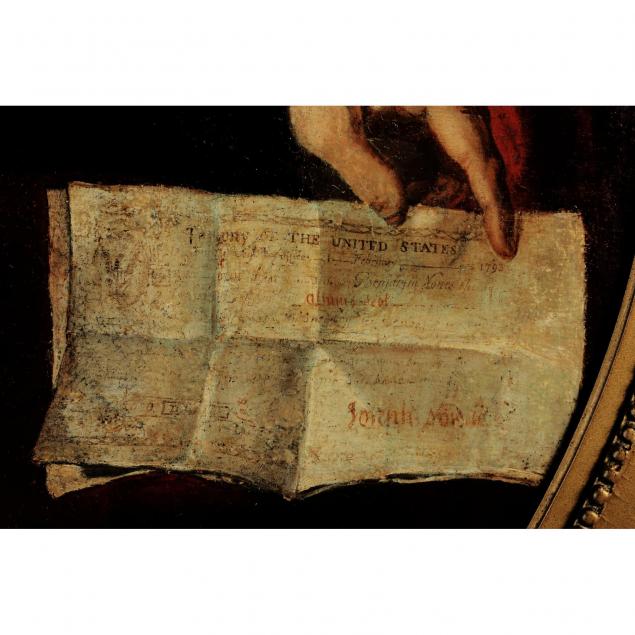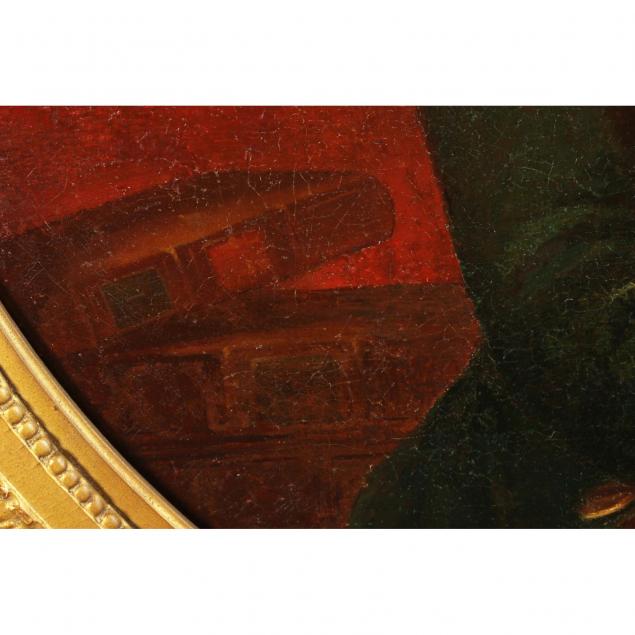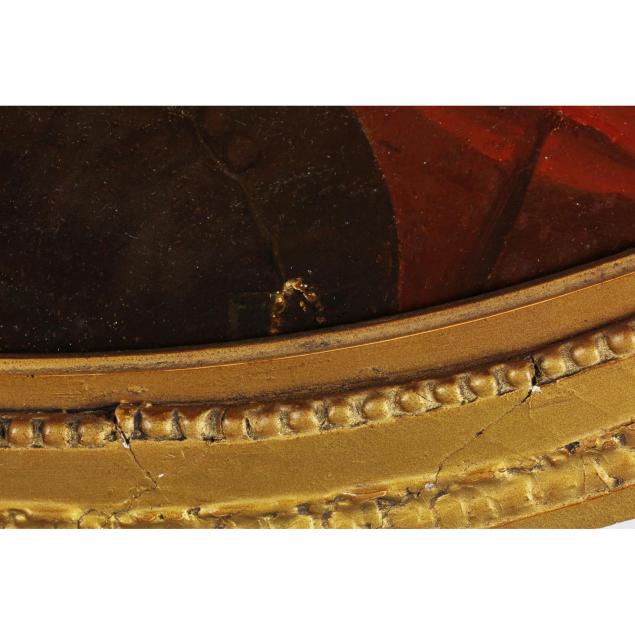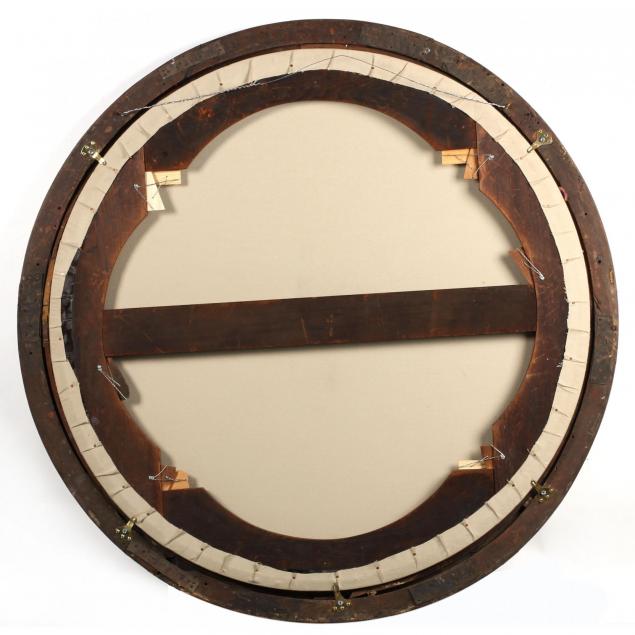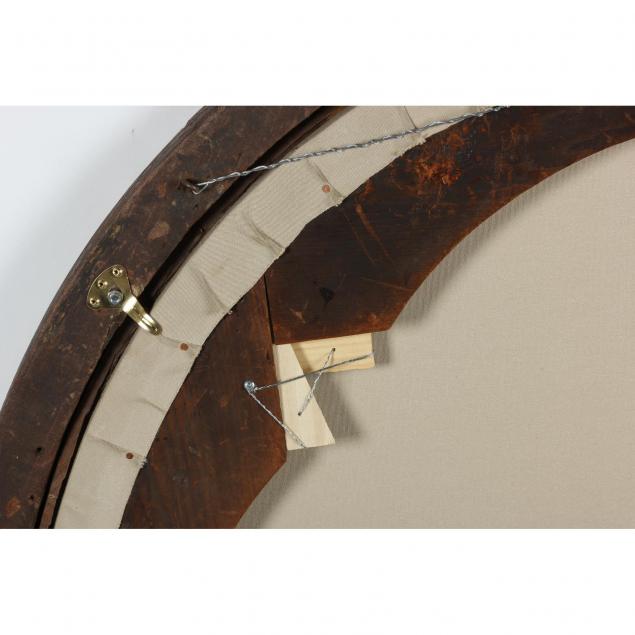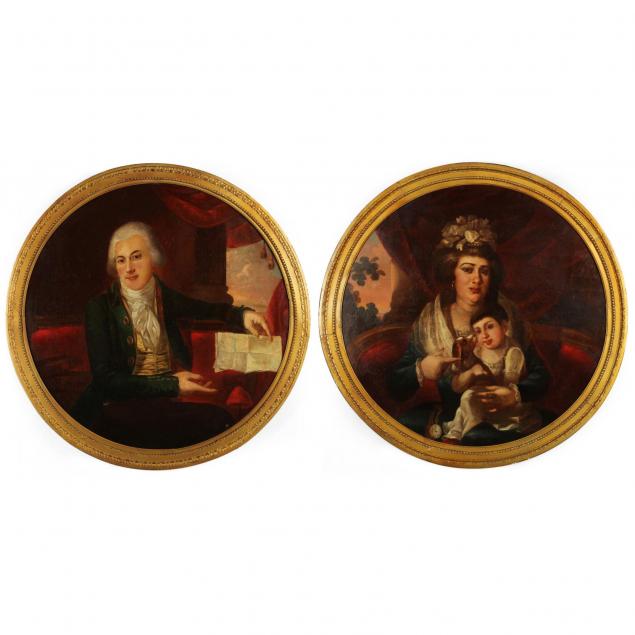
Lot 795
Pair of Important Jewish American Portraits
Explore more items like this one.
Visit our Fine Art Department Fine Art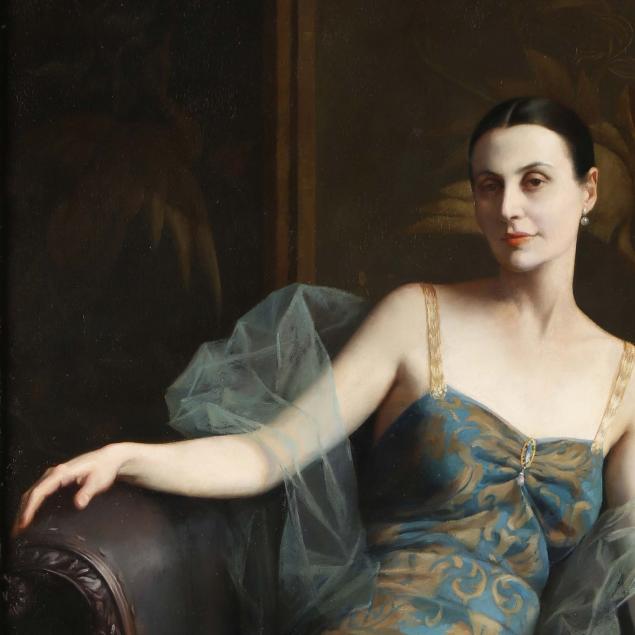
Lot Details & Additional Photographs
SS 35 in. diameter; DOA 40.75 x 41 in.
By descent through the Nones family
Benjamin Nones is often heralded as the Jewish Lafayette. Born the same year as Lafayette, they are purported to have been classmates in France. This is the only known portrait of Nones and is included in PORTRAITS OF JEWS BY GILBERT STUART AND OTHER EARLY AMERICAN ARTISTS by Hannah Ruth London, published in 1927.
Nones, Benjamin (9 March 1757 - 9 February 1826), prominent Jewish American in late 18th and early 19th century America, was born Abraham Benjamin Nones in Bordeaux, France, the son of Abraham Benjamin Nones and Rachel Nones. In a letter written to President Thomas Jefferson, Nones describes his migration from France to the United States thusly, "When the hostile armies of Great Britain invaded the United States to lay waste the fair rights of Freemen, I abandoned the place of my Nativity and arrived in Charleston, South Carolina in the Year 1776 and in the presence of the Legislature of that State took the Oath of Allegiance to that State and to the United States."
Once in Charleston, Nones volunteered to the Militia of South Carolina under the Orders of General Benjamin Lincoln. Nones volunteered with the highly regarded cavalry legion founded and led by Count Casimir Pulaski upon their 1779 arrival in Charleston. While fighting with the Pulaski Legion, Nones engaged in guerrilla warfare throughout the Carolinas and was involved in the Battle of Savannah. A testimonial signed by Captain Verdier, of Pulaski's staff, dated Charleston, 15 December 1779, outlines the bravery and courage shown by Nones throughout the southern campaign and at the siege of Savannah. He was commissioned major and served on the staffs of Washington, Lafayette, and De Kalb. He was captured and taken as a prisoner of war by the British at the Battle of Charleston in early 1780. He remained prisoner until the surrender of Lord Cornwallis on October 19, 1781 when he was released through prisoner exchange.
Nones moved to Philadelphia and was included on a 1781 listing of the members of the Sublime Lodge of Perfection. After establishing himself with the Jewish community of Philadelphia, he married Miriam Marks on May 2, 1782. Over the course of their marriage, the Nones had a total of thirteen children, of which nine survived. He earned a meager living as a dry goods merchant, Notary Public, and sworn Interpreter of Foreign Languages for the Commonwealth of Pennsylvania. With his earnings, Nones owned a home in the city, along with a tract of land called Bayonne, in Westmorland Country, Pennsylvania.
Nones was an active member of Philadelphia's Mikveh Israel Congregation, serving as Parnas of Mikveh Israel for 13 years over four different terms. He also served as an officer of the Society of Ezrath Orchim, the first organized Jewish charity in Philadelphia and as an active member of an anti-slavery society. In fact, Nones was among the first to manumit slaves in Pennsylvania.
Not all Philadelphians were advocates and friends of Benjamin Nones. On 5 August 1800, The Gazette of the United States in Philadelphia published a letter by an anonymous author detailing a Republican convention in the city that was attended by "the refuse and filth of society," particularly "Citizen N" - "a Jew, a Republican, and poor." Most terrible offenses for a Federalist to lob in the early republic.
This insult led to a letter penned by Nones, addressing the accusations and accepting ownership and exhibiting pride that he is a Jew, a Republican, and, certainly, poor. His letter eloquently outlines the support of religious freedoms by Republicans, the basis of Judaism for Christianity and Islam, and his personal morality in the resolving of prior debts following bankruptcy. He hoped to have his letter printed in the Gazette, but even after offering payment for publication, the newspaper refused and Nones contacted the city's Jeffersonian newspaper, Philadelphia Aurora.
Benjamin Nones advocated for many - his family, slaves, fellow Jews, and himself. He sought an appointment from Thomas Jefferson, but received none. He continued the remainder of his years working as a notary and an interpreter, while remaining active in the Jewish community. His sons went on to their own achievements, one serving as Private Secretary of Henry Clay among other positions, another serving as the United States' Consul-General to Portugal, a third as US Consul-General to Maracaibo, and the fourth and fifth distinguished in the navy. They all laid their father to rest in his beloved adopted city of Philadelphia, in the Mikveh Israel Cemetery.
Bibliography
Sons of the American Revolution Membership Applications, 1889-1970. Volume: 97; SAR Membership Number: 19257
Friedman, Saul S. Jews and the American Slave Trade. New Brunswick, NJ: Transaction Publishers. 1998.
Johnson, E. Polk. A History of Kentucky and Kentuckians. Volume II. Chicago/New York: 1912.
Marcus, Jacob Rader. United States Jewry, 1776-1985. Detroit, MI: Wayne State University Press, 1989.
Nones, Benjamin. Letter to Thomas Jefferson. 18 Mar. 1801. Founders Online. National Archives, n.d. Web.
Peters, Madison Clinton. The Jews Who Stood by Washington: An Unwritten Chapter in American History. New York: The Trow Press. 1915.
A conservation report is available.
$5,000 - 10,000
